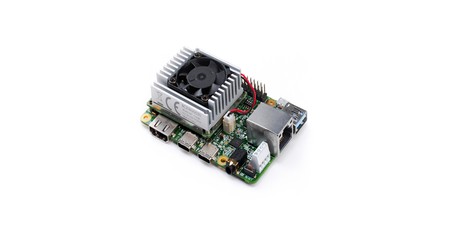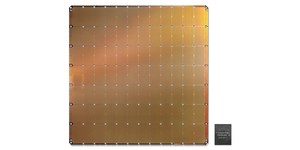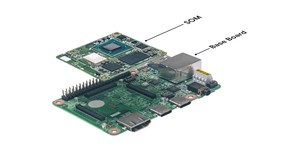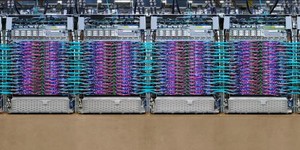
Google has officially launched commercial development kits for its Edge Tensor Processing Unit (TPU) deep-learning accelerator hardware, both in the form of the previously-promised system-on-module (SOM) and in a USB-connected accelerator designed with the Raspberry Pi in mind.
Google's entry into the custom silicon game was announced back in May 2016 with the unveiling of the Tensor Processing Unit (TPU), a custom-built co-processor designed to accelerate deep-learning workloads far beyond the performance achievable using CPU or GPU hardware. At the time, the TPU - and its successors - were exclusively internal devices used to accelerate Google's cloud workloads, but in July last year the company confirmed it was making a lower-power version, dubbed the Edge TPU, available to a wider audience in the form of a system-on-module (SOM) and a Raspberry Pi-like carrier board.
The initial Edge TPU launch was restricted to hand-selected developers only, but the company has now officially opened the devices to all under new Coral branding - and that's 'devices' plural, because the all-in-one development board has been joined by a USB accelerator which appears set to compete with Intel's Movidius Neural Compute Stick family.
The development board, to start, takes an Edge TPU system-on-module (SOM) - also available to purchase separately for integration into finished product designs - with an NXP i.MX 8M quad-core Arm Cortex-A53 processor and integrated GC7000 Lite graphics and marries it to a Google Edge TPU co-processor, 1GB of LPDDR4 memory, 8GB of eMMC storage, and dual-band 802.11ac Wi-Fi with Bluetooth 4.1. This is bundled with a carrier board that includes microSD storage expansion, a USB Type-C on-the-go port, another Type-C for power, a single USB 3.0 Type-A port for peripheral devices, a micro-USB port for serial console, a gigabit Ethernet connection, 3.5mm audio jack, two built-in microphones, HDMI 2.0a connectivity alongside MIPI Display and Camera Serial Interface (DSI and CSI) ports, and a GPIO header.
The development board isn't the only Edge TPU product on offer, though: A USB Accelerator option takes the Edge TPU co-processor and marries it to an Arm Cortex-M0+ microcontroller to create an add-on accelerator compatible with any machine that has a USB port. The cost, of course, is a loss of local memory close to the TPU itself, and while the Type-C port on the device supports USB 3.1 Gen 1 connectivity Google warns that using it with a Raspberry Pi - as it recommends - will limit the performance to USB 2.0 speeds.
Where the Edge TPU was previously only available as part of a closed beta roll-out, Google has now partnered with component specialist Mouser to sell the devices direct to developers: The development board, which includes active cooling for the SOM, is priced at £151.75 (inc. VAT); the USB Accelerator is priced at £73.19 (inc. VAT). Both support Linux exclusively, the company has confirmed, with more information available from the official website.

MSI MPG Velox 100R Chassis Review
October 14 2021 | 15:04








Want to comment? Please log in.